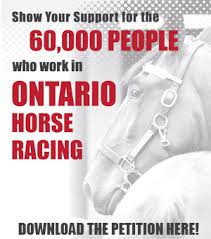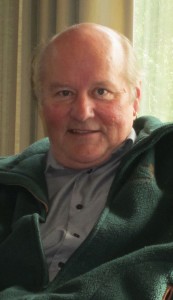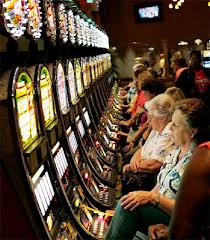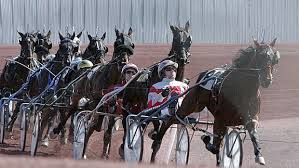By Ray Rivers
BURLINGTON, ON. There was time when the only way you could place a bet was to go a horse race. That was before Trudeau liberalized the criminal code, in 1969, bringing us into the modern age and decriminalizing abortion, homosexuality and lotteries all in one fell swoop. Prior to that it was strictly illegal to place a bet on anything.
I recall watching my parents stash away tickets they held for the Irish Hospital Sweepstakes, a complicated lottery based on horse races, illegal pretty well everywhere but Ireland, but which earned its big money overseas.
Gambling is now very big business. In 2011 Ontario Lottery and Gaming (OLG) turned in $6.7 billion. Another quarter of a billion came from horse racing. Horse racing is mostly located in rural areas and so less accessible to the average urbanite. The forms and betting are complicated, the seasons periodic and the industry heavily regulated. So, it was inevitable that horse racing would get dwarfed by the dollars rolling in from slot machines and the lotteries, especially when they co-located.
But horse racing is more than just gambling, it is part of our culture. If slots and lotteries didn’t exist, it is a safe bet that racing would be far more popular. When slot machines were introduced at race tracks a portion of the money they brought in was used to help finance the racing business. However, when former Premier McGuinty set up the Drummond Commission to help him cut the deficit, the subsidies for horse racing were high on the list of things to eliminate.
Despite the need for subsidies, horse racing is an important agricultural industry which generates significant employment underpinning the existence of many of Ontario’s rural communities. It is estimated that over 30,000 jobs are associated with the horse racing industry which expends over $1.2 billion a year, making this Ontario’s third largest agricultural industry. Ontario claims to have more race events than any other jurisdiction in North America. So when the axe fell and the cuts were announced, horse farmers and the agricultural community mounted a public relations campaign to save their industry.

The horse racing community mounted a strong protest and the government took a second look – out came a compromise which the racing community calls a partnership.
A little over a week ago Ontario Premier Wynne responded to that campaign by bringing forward a plan to restructure Ontario’s horse racing industry to make it more sustainable and economically viable. The settlement is not everything the industry wanted, these things never are, and some people had already exited the industry. Still a subsidy was re-instated and funding was guaranteed for a five-year period, giving stability to the industry.
Gambling is a big revenue earner, which is why even the Bob Rae New Democrats embraced it back when Ontario was suffering its worst recession since the dirty thirties. Annually about $2 billion of the money that comes in goes back out to help fund our health care system and other government priorities. Another $2 billion supports local economic development where Ontario Lottery and Gaming (OLG) facilities are located and about $65 million is spent on gambler education, research and treatment.
One could argue that gambling is a natural process. Every time we get behind the wheel or into an airplane we are gambling with our lives. And what is the stock market or any investment but a gamble by another name. Placing a bet is a voluntary action by individuals supposedly responsible enough to manage their affairs. And if not, there are programs to help the chronic, problem gamblers get their lives straight again.
Over two-thirds of Ontario residents gamble at least once a year, although that might involve no more than purchasing a lottery ticket. And the poor are believed to gamble more than the wealthy thus leading to the label, gambling is a tax on the poor. Interestingly enough the rise in gambling activity over the years has been associated with the increasing gap between the wealthy and the poor in our North American society. But it would be a huge overstatement to blame gambling for that sad consequence. Clearly erosion of the progressive tax system and the introduction of regressive consumer taxes in Canada have weighed-in heavily on that phenomena.
Horse racing is an ancient sport. Its origins date back to about 4500 BC among the nomadic tribesmen of Central Asia, who first domesticated the horse. Since then, horse racing has flourished as the sport of kings. In the USA horse racing is one of the most widely attended spectator sports; over 50 million people attend racing events and wager billions.
That we came close to losing our horse racing industry here in Ontario is frightening. Hopefully the new plan will allow the industry to focus on attracting more participants to watch the magnificent horses and, if so inclined, to bet on the races. I enjoy doing both, the latter in moderation.
 Ray Rivers writes weekly on both federal and provincial politics, applying his more than 25 years as a federal bureaucrat to his thinking. Rivers was a candidate for provincial office in Burlington where he ran against Cam Jackson in 1995, the year Mike Harris and the Common Sense Revolution swept the province. He developed the current policy process for the Ontario Liberal Party.
Ray Rivers writes weekly on both federal and provincial politics, applying his more than 25 years as a federal bureaucrat to his thinking. Rivers was a candidate for provincial office in Burlington where he ran against Cam Jackson in 1995, the year Mike Harris and the Common Sense Revolution swept the province. He developed the current policy process for the Ontario Liberal Party.
Addtional information
Guaranteed funding for a five-year period.






















